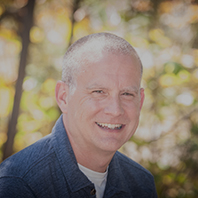We asked several CAHNRS Ambassadors, excellent students who love WSU and their college, to name their favorite or most influential professors. And now we’re featuring those nominated educators in this weekly series, which runs through the summer.

Today we’re showcasing Matthew Bumpus, associate professor in the Department of Human Development. Here are his answers to a few questions:
Where are you from?
I grew up in McMinnville, Oregon.
Where did you go to school?
I got my undergraduate degree in Psychology and Elementary Education from Whitworth University. I earned a master’s degree and Ph.D. in Human Development and Family Studies from Penn State University.
How did you become interested in your field?
My first career was as an elementary school teacher. As a teacher, I was intrigued by the social development and contextual influences of my students, especially their families. Around this same time, I was taking a master’s level research class, and I realized over time that I wanted to become a researcher and study some of those processes that I found so interesting in my students and their families.
Why did you want to become a professor?
I like that being a professor means I get to have a diverse set of experiences almost every day. I like to think about (and then do) research: figuring out which questions I want to ask, and then how to answer them. I also find it fulfilling to write and run statistical analyses, and I also really enjoy teaching and interacting with undergraduate and graduate students.
What is your favorite thing about working with college students?
Working with students is one of the main reasons why I love my job. One of my favorite things about students is that they are figuring out what they value — what matters most to them in life — and then they can focus on doing what they value both while they are at WSU and then after they graduate. It’s incredibly rewarding to play a role in that process for some students, to help students clarify what’s important to them and how to put that clarification into action.
What advice would you pass along to students?
Here are a few things: (a) When you come across material or concepts in a class that you don’t understand, don’t run from that — lean in and ask for help. (b) Get to know your professors! Floating anonymously through your college courses means that you miss out on opportunities for growth and connection. (c) Think carefully about what kind of student/roommate/friend/community member/etc. you want to be, and then develop a habit of periodically self-checking: how are you doing at being the kind of person you have decided you want to be?